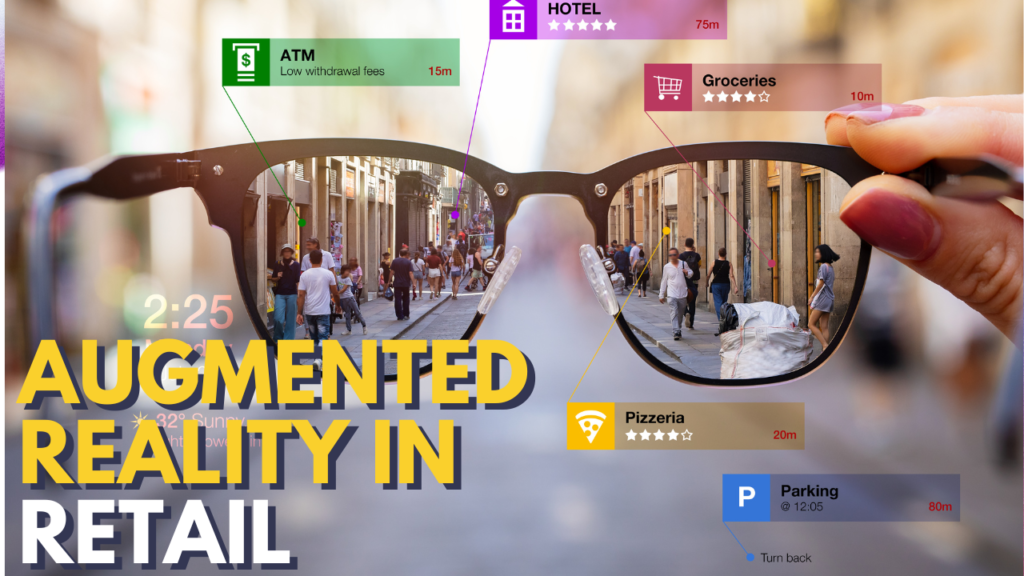Augmented Reality (AR) is redefining the retail landscape, offering immersive and interactive experiences. That bridge the gap between online and offline shopping. This technology enhances the customer journey by providing virtual try-ons, detailed product information, and personalized recommendations. Transforming the way consumers interact with brands and products.
Introduction to Augmented Reality in Retail
The rise of AR in retail is driven by the demand for more engaging and personalized shopping experiences. AR technology allows consumers to visualize products in real-time, in their own space, giving them a better sense of look, fit, and style. This not only enhances customer satisfaction but also significantly reduces the likelihood of returns.
Benefits of Augmented Reality for Consumers and Retailers
For consumers, AR offers convenience, customization, and a fun shopping experience. Retailers, on the other hand, benefit from increased engagement, higher conversion rates, and valuable insights into consumer preferences.
How Augmented Reality is Transforming Retail
Virtual Try-Ons and Fittings
Virtual try-ons have become a game-changer in apparel, footwear, and accessories. Allowing customers to see how products look on them through their smartphone screens or AR mirrors in stores.
In-Store Navigation and Information
AR apps can provide customers with in-store navigation assistance, guiding them to products while offering detailed information and reviews to aid their purchase decision.
Interactive Product Displays
Interactive AR displays can bring static products to life, showcasing features, benefits, and even how the product is used, providing an engaging way to learn about the product without needing physical interaction.
The Technology Behind AR in Retail
AR in retail is powered by a combination of AR devices and platforms, integration with e-commerce platforms, and custom AR app development. This technology relies on sophisticated computer vision, machine learning, and graphics rendering to create seamless and realistic augmented experiences.
Case Studies: Successful AR Implementations in Retail
Leading retailers in apparel, furniture, and cosmetics have successfully implemented AR to offer unique shopping experiences, resulting in increased customer engagement and sales.
Challenges and Solutions for AR in Retail
While AR presents numerous opportunities, it also comes with challenges such as technical limitations, the need for widespread user adoption, and privacy concerns. Overcoming these challenges requires ongoing technological advancements and clear communication of AR’s benefits to consumers.
The Future of AR in Retail
The future of AR in retail looks promising, with advancements in 5G and AI expected to further enhance AR experiences. These technologies will enable faster, more realistic, and personalized AR interactions, setting the stage for even more innovative retail applications.
Augmented Reality in Retail: Enhancing the Shopping Experience
AR technology significantly impacts consumer behavior by providing a more engaging and interactive shopping experience. It also plays a crucial role in building customer engagement and loyalty, as personalized and immersive experiences often lead to repeat business.
Regulatory and Ethical Considerations
As AR technology becomes more prevalent in retail, issues related to user privacy and data protection come to the forefront. Retailers must navigate these considerations carefully, ensuring ethical use of AR technology and adherence to data protection regulations.
Preparing for an AR-Enabled Retail Future
Retailers looking to stay ahead in the digital age must consider investing in AR technology and talent. Developing a strategic approach to AR implementation, focusing on creating value for the customer, will be key to leveraging this technology’s full potential.
FAQs on Augmented Reality in Retail
Addressing common questions about AR in retail can help demystify the technology and its applications, making it more accessible to retailers and consumers alike.
Conclusion: Revolutionizing Retail with AR
Augmented reality is poised to revolutionize the retail industry by providing immersive experiences that enhance the shopping journey. As technology evolves, AR will continue to play a transformative role in how consumers interact with brands and make purchase decisions, marking a new era in retail innovation.



